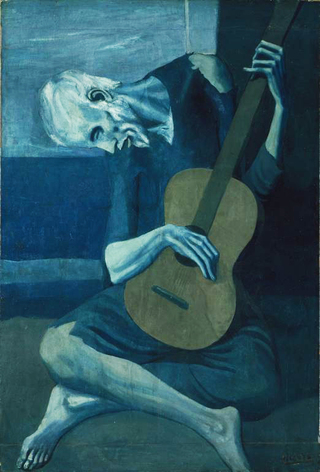
In the spirit of Mental Health Awareness week and calls to live #stigmafree, I have absolutely no problem sharing a part of me so close to my core it feels weird to admit to: I have had and continue to struggle with mental health issues. Unfortunately, this hardly makes me unique among academics at large, and even puts me almost in a majority among grad student populations.
In fact, this is what truly prompts me to write here: a long-standing obstacle between me and achieving the mental health and balance that I enjoy (and work hard for) today connected to my identity as an aspiring academic. I can tell you the year I first saw a therapist or first started on medication, but I cannot tell you when the sadness first started -- when was it normal people-sad and when did it turn into clinical depression? Who knows. But as long as I can remember, I learned that mental illness could be positive and something admirable and/or tragic in society --
IF AND ONLY IF it accompanied genius.
This myth is everywhere; from depictions of savants in movies and television as in Rain Man or A Beautiful Mind, to the haunted reputations of creative artists like Van Gogh, Beethoven or Edvard Munch. The correlation even carries over back into the land of mental-health stigma, like how people love to point out that the Unabomber had a ridiculously high IQ. Perhaps most influential of all for me, though, was the predominance of authors for whom their mental illness is an important part of their sanctification as a brilliant genius. Admittedly, I did and do have a predilection for Russian literature and French existentialists. The suicidal Hamlet has always been my favorite Shakespeare character. My favorite romance went from the uplifting Jane Eyre to the much more morbid Wuthering Heights almost as soon as I picked it up in seventh grade. Virginia Woolf, Sylvia Plath, Anne Sexton, Emily Dickinson, Charlotte Perkins Gilman's The Yellow Wallpaper, and Kate Chopin's The Awakening . . . I didn't have a lot of positive role models insofar as brilliant female authors of positive outlook and sound mind went. Besides, wasn't feel-good literature all just pop-fluff? I wanted to read the real geniuses.
The depressed ones.
They made sense to me, and made me feel less freakish.
I think that for years, I was actually scared of what would happen if I lost the comforting blanket of depression, anxiety, and whatever else was going on. I wanted to not be in pain, but I was also scared to death of life without mental illness. What if I was no longer special? What if the depression and my academic successes were coming from the same root source, and I couldn't have one without the other? I would be that much less like so many of my tortured, miserable, suicidal intellectual heroes.
But here's the truth. I am well now. I am getting ever better all the time with continuing support, love, exercise, good eating, mindfulness, and tackling my problems one by one, just as everyone should do. My dissertation is getting written.
And even if I wasn't:
I'm still here to share my thoughts with the world, whatever they are worth -- and that is worth a lot.
 RSS Feed
RSS Feed